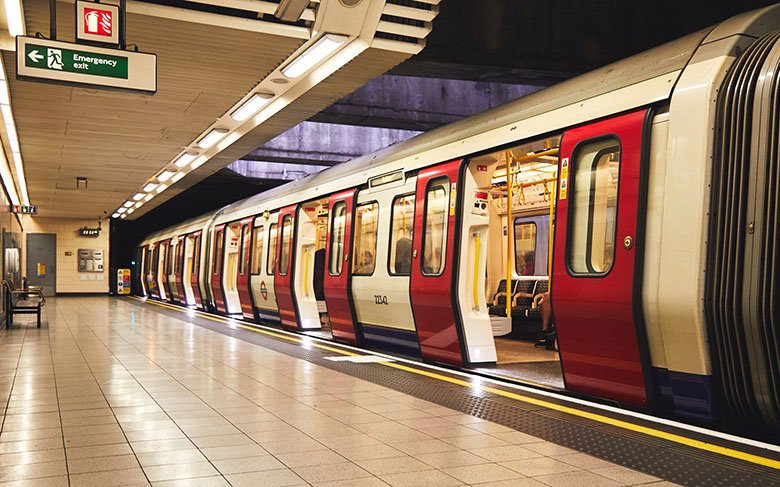

London Underground, affectionately known as "The Tube," is the heartbeat of the UK capital's public transport system, serving millions of commuters and tourists every day. From its iconic roundel logo to the distinctive map of interconnecting lines, the London Underground is not just a transport service—it's an integral part of London’s identity and history. Spanning 11 lines, this comprehensive network covers all corners of London, providing a swift, reliable, and efficient means to explore the city.
The origins of the London Underground date back to the early 19th century, with the opening of the world’s first underground railway in 1863, running between Paddington and Farringdon Street. Since then, the system has expanded exponentially, keeping pace with the city’s growth and technological advancements. Today, it features 272 stations, with plans for ongoing developments to maintain its modernity and efficiency.
Whether you’re a first-time visitor or a long-time resident, The Tube offers an unparalleled experience, whisking you beneath the city’s bustling streets and iconic landmarks. In fact, exploring London via the Underground allows for a unique perspective, connecting you with destinations in a practical, timely manner. The episodic sound of the trains, the distinctive "mind the gap" announcements, and the vibrant and diverse crowds all contribute to the rich tapestry of your journey. As you traverse this vast network, you’ll encounter the authentic buzz of city life and the multicultural mosaic that is London.
Looking for affordable London Underground train tickets? Traintickets.com has got you covered. We'll help you explore where London Underground can take you and make it simple as possible to book the cheapest train tickets available for your journey.
The London Underground prides itself on providing comfortable and accessible transport for everyone. While travelling, expect basic facilities such as seating and handrails. While the Tube doesn’t offer a class system typically seen on mainline trains, each carriage is designed to accommodate both seated and standing passengers, ensuring efficient use of space during peak and off-peak times.
London Underground trains are equipped with automated announcements and live audio-visual updates, keeping passengers informed about upcoming stations and travel changes. Moreover, the overwhelming majority of Underground stations are accessible to differently-abled passengers, featuring step-free access and assistance where needed.
While there are no dining options available onboard, many stations house a variety of eateries and shops, meaning you’re never far from a snack or refreshment. Additionally, some parts of the Underground offer WiFi connectivity, ensuring you can stay connected during your journey.

Save an average of 61%!
One of the easiest ways to save money on train tickets is to book in advance. The earlier you book your tickets, the cheaper they will be. This is especially true for long-distance journeys. Train companies usually release their tickets up to 12 weeks in advance, so if you know when you're planning to travel, it's a good idea to book your tickets as soon as possible.
With our FairSplit technology, you can save up to 90% on the cost of train travel.
70% of our customers find a cheaper split ticket fare, saving £25 on average
It may sound complicated, but it's a smart way to save serious money on rail fares. Here at TrainTickets.com we make it quick, simple and easy to buy split tickets that will help keep more cash in your pocket.
Travelling in a group? We can save you even more!
Unlike other split ticketing sites, you can enter multiple railcards in a single search on traintickets.com. We will find you the best price using all possible combinations of your railcards in conjunction with our split ticketing technology & GroupSave.
Yes, many London Underground stations offer WiFi coverage, allowing you to stay connected while commuting. However, WiFi access onboard trains varies across different lines and tunnels.
Peak hours on the London Underground are typically from 6:30 am to 9:30 am and 4:00 pm to 7:00 pm on weekdays. During these times, the trains are often busier, and fares may be higher.
Folding bicycles are permitted on all London Underground services at all times. Non-folding bicycles are only allowed outside peak hours on select lines due to space constraints.
Yes, pets are allowed on the London Underground, provided they are on a lead or in an appropriate carrier, without causing inconvenience to other passengers.
Passengers are allowed to bring luggage as long as they can manage it themselves. Large items and heavy bags may be cumbersome during busy periods.
No, there are no dining facilities onboard London Underground trains. However, many stations house shops and cafes where you can purchase food and beverages.
Yes, London Underground strives to be accessible for all travelers by offering features like step-free access, tactile paving, and assistance points in several stations.
In the event of losing an item on The Tube, contact the Lost Property Office operated by TfL or enquire at the station. It's recommended to report the lost item as soon as possible for the best chance of retrieval.
With London Underground, there are lots of amazing places you can visit by train. To find some inspiration on where to go, check out these highlights!
Travel to Westminster station and step into history. Here, you’ll find the Houses of Parliament and the iconic Big Ben, both cornerstone symbols of British heritage. Just a short walk away is the world-renowned Westminster Abbey.
A vibrant area represented by its lively markets and eclectic music venues. Camden Town station on the Northern Line is your gateway to exploring an unrivaled mix of cultures and cuisines.
Located on the Central and Victoria lines, Oxford Circus is where you can indulge in retail therapy. It offers easy access to Oxford Street and Regent Street, two of London’s premier shopping destinations.
Reachable via the Piccadilly and District lines. It’s the epicenter for London’s museum district, hosting the Natural History Museum, the Science Museum, and the Victoria and Albert Museum.